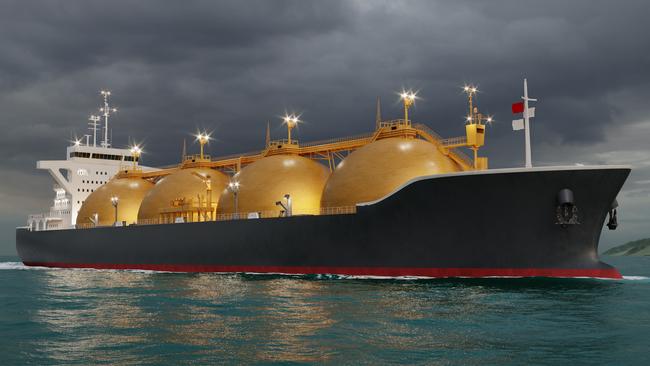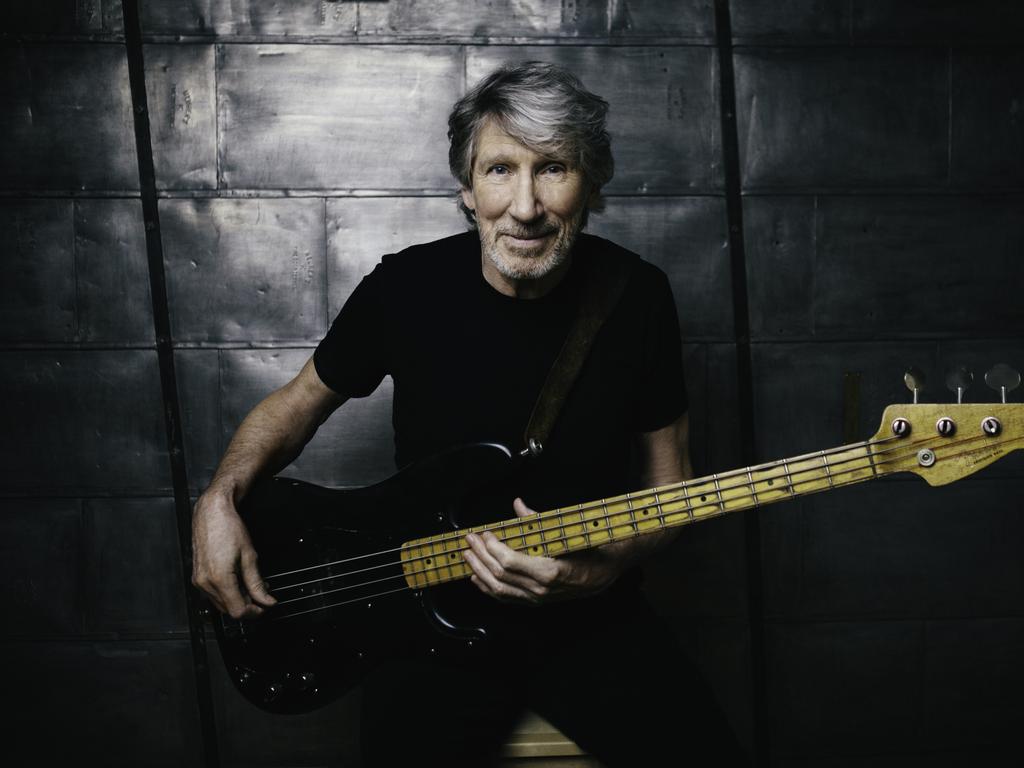Australia ready to fill gas gap in Europe if Russia-Ukraine tensions explode
Australian LNG exporters prepare to fill Europe energy shortages if Russia cuts gas supplies over Ukraine stand-off.

Australian LNG exporters are preparing to fill energy shortages across Europe if Russia cuts off gas supplies, with the federal government pledging to support “friends and allies” caught up in the escalating stand-off over Ukraine.
As US officials scrambled to source alternative energy supplies for countries heavily reliant on Russian gas, Trade Minister Dan Tehan and Resources Minister Keith Pitt said Australia was ready to ship LNG exports to Europe.
European nations on average draw more than 40 per cent of their gas imports from Russia – Germany’s reliance is even greater – sparking growing concerns that Moscow could limit supply to the continent in response to the Ukraine tensions.
Amid reports US officials were holding talks with Australian and Qatari gas suppliers, Mr Tehan said the nation stood ready “to support our friends and allies in the current challenging and complex geostrategic environment”.
“The current geostrategic environment that Australia faces is the most complex since the Second World War,” Mr Tehan said. “This environment will continue to present both challenges and opportunities to Australian exporters now and into the future.
“As Australian LNG exports are expected to grow this financial year, Australian LNG exporters are ideally placed to meet any demand that may arise globally.”
US President Joe Biden on Tuesday threatened to slap sanctions on Vladimir Putin’s financial accounts and interests if any attack on Ukraine were made, as Russia said it was conducting new drills with 6000 troops near Ukraine and in the Crimea.
Moscow, which already has 100,000 troops near Ukraine, has demanded in recent weeks that the country, a former Soviet republic, never be allowed to join NATO and a stop to Western drills near the Russian border. The Biden administration has rejected those demands.
With Canberra already threatening to impose economic sanctions and assist Ukrainian officials to repel cyber attacks, former Australian ambassador to Ukraine Doug Trappett warned Mr Putin was attempting to restore the Soviet Union’s “status and influence”.
“Certainly the effort and resources he has invested in rebuilding the Russian military and trying to make Russia a seemingly indispensable part of various conflicts – from the Middle East and northern Africa to northeast Asia – would seem to indicate it,” said Mr Trappett, writing in The Australian.
Mr Trappett, Australia’s first resident ambassador in Kiev between 2014 and 2016, compared Mr Putin’s tactics with those of China’s “ongoing grey zone activities and incursions with Taiwan”.
“As daunting as it is, only robust and united diplomacy from NATO leading to a clear Russian understanding of the penalties at stake for any aggression might circumvent the situation,” Mr Trappett said.
“Australia may not want this to occupy too much US focus, but nor should we underestimate what neglect by NATO might mean for the credibility of the global rules-based order.
“For these reasons, we should also not underplay Australia’s role. Our own vast security challenges and limited resources preclude the provision of significant military support. But we have more skin in the game than we might realise. We should be vocal and active.”
The Australian understands European and British authorities have been investigating alternative energy, gas and LNG sources in response to tensions with Russia over cyber attacks, militarisation and espionage activity not seen since the Cold War.
While local gas producers were unlikely to become long-term mass LNG suppliers to Europe, Australian exporters could help plug emergency shortages and attract premium prices.
Global demand for Australian gas is already at an all-time high, with LNG export earnings forecast to increase from $30bn to $63bn in 2021-22.
Mr Pitt said that as a world-leading, reliable gas exporter, Australia was “ready to assist with any request for further supplies” from European nations. “This shows how important Australian resources are to energy supplies around the world,” he said.
He warned that ongoing “lawfare” by activists threatened “not just Australian jobs, but energy security in countries that rely on our gas exports”.
The US government on Tuesday revealed it was in negotiations with “multiple” governments and energy companies around the world to prepare for a co-ordinated “surge” of output, in case Russia reneged on repeated promises not to cut off power to NATO members in Europe. “Disruption in physical energy supply transiting through Ukraine would acutely affect natural gas markets in Europe, including how they deploy existing energy stockpiles, which are at low levels,” a senior US official said.
The official said Australia and Qatar were party to these discussions but didn’t provide further details given the market sensitive nature of the talks.
The White House announced that Mr Biden would meet the emir of gas-rich Qatar, Tamim bin Hamad Al Thani, on January 31 to discuss, among other issues, “ensuring the stability of global energy supplies”.
“If Russia decides to weaponise its supply of natural gas or crude oil, it wouldn’t be without consequences to the Russian economy,” a US official said.
Although the European Union sources about 40 per cent of its supply from Russia, Moscow also relies heavily on sales of energy, meaning “it’s an interdependency”, the official said.
The Biden administration put about 8500 US-based troops on “high alert” amid heightened risk of a Russian incursion into Ukraine.
Home Affairs Minister Karen Andrews said Australia would provide any technical cyber assistance it could to Ukraine.
Ms Andrews said cyber attacks on critical infrastructure including energy grids, water supply, financial and health systems posed the greatest risks.







To join the conversation, please log in. Don't have an account? Register
Join the conversation, you are commenting as Logout